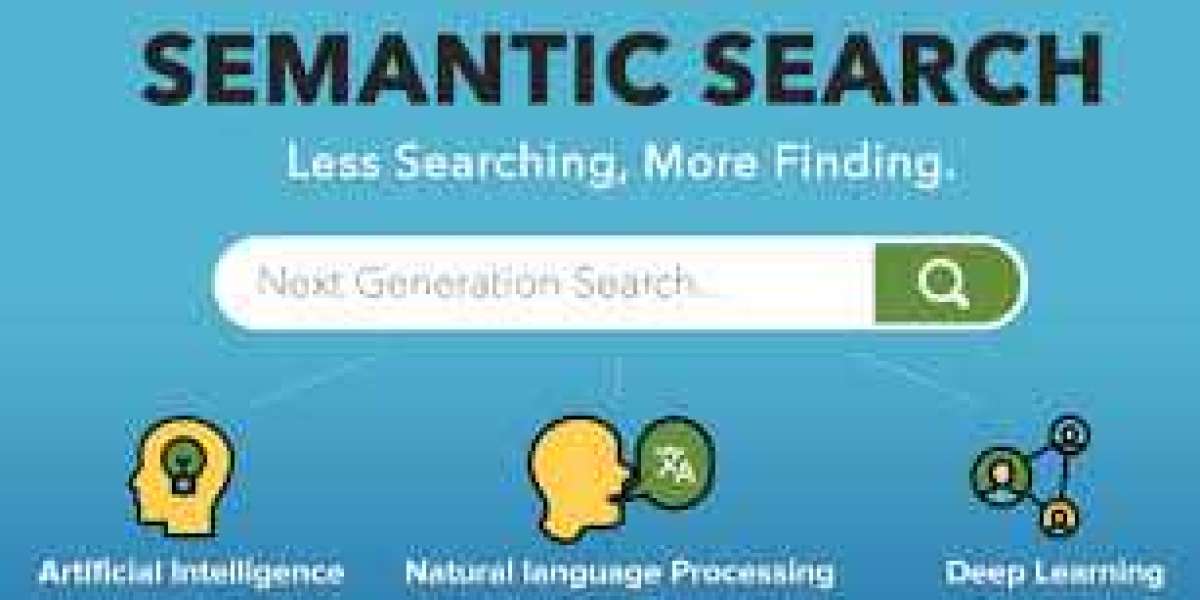The global Laboratory Information System (LIS) market reached an estimated value of USD 1.96 billion in 2023. This growth is primarily driven by the increasing demand for accurate and efficient diagnostic testing worldwide. As healthcare systems continue to evolve and the emphasis on data-driven decision-making intensifies, LIS solutions are becoming indispensable. Forecasts suggest that the market will expand to USD 3.59 billion by 2032, exhibiting a compound annual growth rate (CAGR) of 6.98% during the period from 2024 to 2032. This growth trajectory underscores the critical role of LIS in modern healthcare infrastructure.
Market Segmentation
Market segmentation is a fundamental aspect of understanding the LIS market landscape. It involves dividing the market into distinct subsets based on various criteria to tailor strategies effectively. The primary segmentation parameters for the LIS market include:
1. By Component
Software: This segment includes all the LIS software solutions that manage laboratory operations, data management, and reporting functionalities. The software can be further categorized into on-premises and cloud-based solutions, with the latter gaining significant traction due to scalability and cost-effectiveness.
Services: This encompasses a range of services including implementation, customization, training, and maintenance. Services are crucial for ensuring that the LIS integrates seamlessly with existing systems and meets the specific needs of the healthcare provider.
2. By Deployment Mode
On-Premises: Traditional deployment where the LIS is installed locally on the institution’s servers. This mode offers greater control over data security and customization but requires substantial upfront investment and maintenance.
Cloud-Based: Increasingly preferred due to lower initial costs, scalability, and ease of access. Cloud-based LIS solutions offer flexibility, allowing laboratories to scale their operations without significant infrastructure changes.
3. By End-User
Hospitals: The largest segment, as hospitals require comprehensive LIS solutions to manage vast amounts of laboratory data, ensuring accurate diagnostics and efficient workflow management.
Diagnostic Laboratories: These facilities rely heavily on LIS for processing high volumes of tests, managing patient information, and ensuring compliance with regulatory standards.
Research Institutes: Utilize LIS to manage experimental data, track samples, and collaborate on research projects. The need for precise data management makes LIS indispensable in these settings.
Others: Includes various other settings such as clinics, outpatient care centers, and specialized laboratories that require tailored LIS solutions.
Get a Free Sample Report with Table of Contents
4. By Application
Clinical Diagnostics: Focuses on the analysis and interpretation of clinical samples to aid in patient diagnosis and treatment. LIS facilitates the management of test orders, results, and reporting.
Pharmaceutical Research: Supports the drug development process by managing experimental data, ensuring compliance with regulatory standards, and facilitating collaboration among research teams.
Genomics: Handles large datasets associated with genetic information, aiding in personalized medicine and advanced diagnostic techniques.
Others: Encompasses various other applications such as environmental testing, food safety analysis, and industrial laboratory operations.
5. By Geography
North America: Dominates the market due to advanced healthcare infrastructure, high adoption rates of technology, and significant investments in healthcare IT.
Europe: Follows closely, driven by stringent regulatory frameworks, increasing healthcare expenditures, and a growing emphasis on precision medicine.
Asia-Pacific: Expected to witness the highest growth rate, fueled by rising healthcare investments, expanding healthcare infrastructure, and increasing prevalence of chronic diseases.
Latin America: Growth driven by improving healthcare facilities and increasing awareness about the benefits of LIS.
Middle East Africa: Emerging markets with potential for significant growth as healthcare systems modernize and adopt advanced IT solutions.
Competitor Landscape
The Laboratory Information System market is characterized by the presence of several key players who are driving innovation, expanding their market presence, and striving to meet the evolving needs of healthcare providers. The competitive landscape includes:
1. Orchard Software Corporation
Overview: Orchard Software Corporation is a prominent player in the LIS market, known for its robust and scalable solutions tailored to diverse laboratory environments.
Key Offerings:
- Orchard Harvest: A comprehensive LIS solution that integrates seamlessly with electronic health records (EHR) and other healthcare systems. It offers modules for specimen tracking, result management, and reporting.
- Cloud-Based Solutions: Emphasizes cloud deployment to provide flexibility and scalability to its clients.
Strengths:
- Customization: Highly customizable to meet the specific needs of different laboratory settings.
- User-Friendly Interface: Focus on ease of use enhances user adoption and reduces training time.
- Strong Customer Support: Provides extensive support and training services to ensure smooth implementation and operation.
Strategic Moves:
- Acquisitions: Orchard Software has been active in acquiring smaller players to enhance its technological capabilities and expand its market reach.
- Partnerships: Collaborates with other healthcare technology providers to offer integrated solutions.
2. Sunquest Information Systems, Inc.
Overview: Sunquest Information Systems, Inc. is a leading provider of LIS solutions, renowned for its innovative technology and comprehensive service offerings.
Key Offerings:
- Sunquest Laboratory Information System: A state-of-the-art LIS that supports a wide range of laboratory operations, from workflow management to data analytics.
- Sunquest Advance: Focuses on advanced analytics and reporting capabilities, providing deeper insights into laboratory performance and patient outcomes.
Strengths:
- Innovation: Continuously invests in RD to incorporate the latest technological advancements, such as artificial intelligence and machine learning, into its solutions.
- Comprehensive Solutions: Offers end-to-end LIS solutions that cater to both small and large laboratories.
- Global Presence: Strong international footprint, serving clients across various regions with localized support.
Strategic Moves:
- Technological Advancements: Enhancing its LIS with advanced analytics and AI capabilities to provide predictive insights and improve decision-making.
- Expansion: Expanding its market presence in emerging regions through strategic partnerships and alliances.
3. Cerner Corporation
Overview: Cerner Corporation is a global leader in healthcare IT solutions, with a significant presence in the LIS market. Known for its integrated approach, Cerner offers comprehensive solutions that align with broader healthcare IT ecosystems.
Key Offerings:
- Cerner Millennium: An integrated LIS solution that seamlessly connects laboratory data with other healthcare systems, ensuring cohesive data flow and interoperability.
- PowerChart Laboratory: A component of the Cerner Millennium suite, focused specifically on laboratory information management, including specimen tracking and result reporting.
Strengths:
- Integration Capabilities: Exceptional ability to integrate LIS with other healthcare IT systems, enhancing data interoperability and reducing information silos.
- Scalability: Solutions are highly scalable, suitable for large healthcare networks and multi-site laboratories.
- Comprehensive Support: Extensive support services, including implementation, training, and ongoing maintenance.
Strategic Moves:
- Acquisitions: Acquired smaller LIS providers to expand its technological capabilities and market reach.
- Cloud Transition: Investing in cloud-based LIS solutions to meet the growing demand for flexible and scalable deployment options.
4. Computer Programs and Systems, Inc. (CPSI)
Overview: Computer Programs and Systems, Inc. (CPSI) is a specialized provider of LIS solutions, particularly catering to public health and clinical laboratories.
Key Offerings:
- CPSI PathNet: A robust LIS platform designed to streamline laboratory operations, from sample collection to result delivery.
- Public Health Solutions: Tailored LIS solutions that address the unique requirements of public health laboratories, including disease surveillance and reporting.
Strengths:
- Specialization: Deep expertise in serving public health and clinical laboratories, providing tailored solutions that meet specific regulatory and operational needs.
- Customization: High degree of customization available to fit the unique workflows and requirements of different laboratory settings.
- Compliance: Strong focus on regulatory compliance, ensuring that solutions meet all relevant standards and guidelines.
Strategic Moves:
- Enhanced Functionality: Continuously enhancing its LIS offerings with new features and capabilities to meet evolving market demands.
- Market Expansion: Expanding its presence in international markets by forming strategic alliances and partnerships.
5. CompuGroup Medical SE and Co. KGaA
Overview: CompuGroup Medical SE and Co. KGaA is a leading European provider of healthcare IT solutions, including comprehensive LIS offerings.
Key Offerings:
- CGM LABMED: An integrated LIS solution that supports a wide range of laboratory functions, including sample management, result reporting, and data analytics.
- Interoperability Solutions: Emphasizes interoperability with other healthcare IT systems, ensuring seamless data exchange and integration.
Strengths:
- European Market Leadership: Strong presence and market leadership in Europe, supported by a deep understanding of regional regulatory requirements and market dynamics.
- Comprehensive Solutions: Offers a broad range of healthcare IT solutions, allowing for integrated and cohesive system implementations.
- Innovation: Invests in innovative technologies such as cloud computing, AI, and machine learning to enhance its LIS offerings.
Strategic Moves:
- Global Expansion: Expanding its footprint beyond Europe into North America and Asia-Pacific through strategic acquisitions and partnerships.
- Technological Integration: Integrating advanced technologies to enhance the functionality and performance of its LIS solutions.
Competitive Analysis
The competitive landscape of the LIS market is shaped by factors such as technological innovation, strategic partnerships, market expansion, and customer-centric approaches. Each of the key players brings unique strengths and strategies that influence their market position.
Orchard Software Corporation
Orchard Software’s focus on customization and user-friendly interfaces gives it a competitive edge, particularly among mid-sized laboratories seeking tailored solutions. Its strategic acquisitions have bolstered its technological capabilities, enabling it to offer more comprehensive and integrated solutions. The company's strong customer support infrastructure also contributes to high customer satisfaction and loyalty.
Sunquest Information Systems, Inc.
Sunquest stands out with its commitment to innovation, particularly in incorporating AI and machine learning into its LIS offerings. This focus on advanced analytics provides laboratories with deeper insights and predictive capabilities, enhancing decision-making processes. Sunquest’s global presence and comprehensive service offerings make it a formidable competitor in both established and emerging markets.
Cerner Corporation
Cerner’s ability to integrate LIS seamlessly with broader healthcare IT systems positions it as a preferred choice for large healthcare networks and institutions seeking cohesive data ecosystems. Its scalability and robust support services cater to the needs of extensive and complex laboratory operations. Cerner’s strategic acquisitions and investment in cloud technologies ensure its solutions remain cutting-edge and relevant.
Computer Programs and Systems, Inc. (CPSI)
CPSI’s specialization in public health and clinical laboratories allows it to cater to niche markets with specific regulatory and operational requirements. Its high degree of customization and strong compliance focus make it an attractive option for laboratories that require tailored solutions. CPSI’s ongoing enhancements and market expansion efforts further strengthen its competitive position.
CompuGroup Medical SE and Co. KGaA
CompuGroup Medical’s leadership in the European market is bolstered by its comprehensive suite of healthcare IT solutions and emphasis on interoperability. Its investment in innovative technologies ensures that its LIS offerings remain at the forefront of technological advancements. The company’s strategic expansion into other regions through acquisitions and partnerships enhances its global footprint and competitive strength.
Market Trends and Drivers
Several key trends and drivers are shaping the LIS market landscape:
1. Increasing Demand for Accuracy and Efficiency
The primary driver for the LIS market is the growing need for accurate and efficient diagnostic testing. Laboratories are under pressure to process high volumes of tests quickly while maintaining precision. LIS solutions streamline workflows, reduce errors, and enhance data management, addressing these needs effectively.
2. Technological Advancements
Advancements in technology, particularly in AI, machine learning, and cloud computing, are transforming LIS solutions. These technologies enable predictive analytics, automated processes, and scalable deployments, making LIS more powerful and flexible.
3. Integration with Electronic Health Records (EHR)
Seamless integration with EHR systems is becoming increasingly important. LIS solutions that can easily exchange data with EHR systems improve data interoperability, enhance patient care, and reduce administrative burdens.
4. Regulatory Compliance
Stringent regulatory requirements in healthcare necessitate robust LIS solutions that ensure compliance with standards such as HIPAA, CLIA, and GDPR. LIS providers are focusing on enhancing their solutions to meet these regulatory demands.
5. Growing Healthcare Expenditure
Increasing healthcare expenditure globally, particularly in developing regions, is driving the adoption of advanced LIS solutions. Investments in healthcare infrastructure and IT are enabling laboratories to modernize their operations.
6. Rise of Personalized Medicine
The trend towards personalized medicine, which relies on precise genetic and molecular data, is boosting the demand for sophisticated LIS solutions that can manage complex datasets and support advanced diagnostic techniques.
Challenges and Opportunities
Challenges
High Implementation Costs: The initial investment required for deploying LIS solutions can be substantial, particularly for smaller laboratories, potentially hindering adoption.
Data Security Concerns: With the increasing reliance on digital solutions, ensuring data security and protecting patient information is a critical challenge.
Interoperability Issues: Achieving seamless integration with existing healthcare IT systems can be complex, limiting the effectiveness of LIS solutions.
Opportunities
Emerging Markets: Expanding into emerging markets such as Asia-Pacific and Latin America presents significant growth opportunities, driven by increasing healthcare investments.
Technological Innovations: Continued advancements in AI, machine learning, and cloud computing offer opportunities for LIS providers to enhance their offerings and differentiate themselves.
Customization and Specialization: Developing highly customized and specialized LIS solutions for niche markets can help providers tap into specific customer needs and gain a competitive advantage.
Future Outlook
The LIS market is poised for substantial growth over the next decade, driven by the increasing demand for accurate diagnostics, technological advancements, and expanding healthcare infrastructure. Key players are expected to continue investing in innovation, expanding their market presence, and enhancing their service offerings to meet the evolving needs of laboratories worldwide. The shift towards cloud-based solutions, integration with EHR systems, and the incorporation of advanced analytics will shape the future trajectory of the LIS market, making it more dynamic and responsive to the challenges of modern healthcare.








